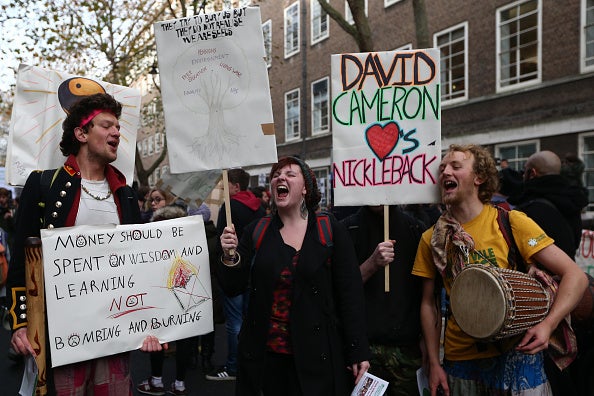Students were ‘not as powerful as assumed’ at the 2015 general election, says higher education expert
Head of HEPI also says students 'may not make much difference to the Labour cause'

Students are not as powerful at the polling station as initially thought, and also ‘may not make much difference’ to the Jeremy Corbyn and Labour cause, according to a top higher education expert.
In a detailed report analysing the voting behaviour of students at the general election, Nick Hillman, director of the Higher Education Policy Institute (HEPI), also said students were less motivated by student issues and more motivated by general issues of interest to the mass of the electorate than many people have assumed.
HEPI said that, before the election, the National Union of Students (NUS) predicted students could affect the outcome of the general election in around 200 constituencies, with the institute itself having predicted students would determine the outcome in only around ten constituencies.
HEPI also said post-election that, if the opinion polls were a guide to the next election, then students ‘could just swing the overall result and hold the keys to power.’
Read the full report:
Acknowledging how the 2015 general election ‘threw up an unexpected result overall’, Mr Hillman said: “Students were less supportive of the Conservative Party than the electorate as a whole, which helped Labour. It’s hard to see how Labour could have taken places like Chester – which they won from the Conservatives with a majority of just 93 – without the relatively strong support they enjoyed among students.”
However, he described how, in many constituencies with lots of students, the Labour Party did not do anything like as well as had been predicted, adding: “In Loughborough, Nicky Morgan won half the votes and turned a marginal seat into a much safer one. It seems, overall, students are not as different to other voters as has often been supposed.”
Liberal Democrats ‘did badly across the board’, including in student seats, he said, adding: “It made relatively little difference whether Lib Dem standing for re-election had opposed, abstained, or supported £9,000 fees.”
On the topic of why student-related issues may be of less importance to students, the report suggests this could be down to the fact they are not at university for long. It adds: “Undergraduate courses in England typically last around three years and postgraduate courses often last only one year. So the student experience is a transient one and the student body differs from one general election to the next.”
As well as this, the analysis proposes students may not vote on such issues, as expected, because promises to improve student finance are often of more financial benefit to future as opposed to current students.
On the whole, looking at the level of power yielded by the student body, Mr Hillman rounded off by saying: “At the recent Labour Party Conference, Jeremy Corbyn said improving voter registration rates among students is one of his first big campaigns. That will be good for democracy, but it may not make much difference to the Labour cause.
“Overall, students are not currently as electorally powerful, nor as different to other voters, as has generally been assumed.”
Subscribe to Independent Premium to bookmark this article
Want to bookmark your favourite articles and stories to read or reference later? Start your Independent Premium subscription today.

Join our commenting forum
Join thought-provoking conversations, follow other Independent readers and see their replies